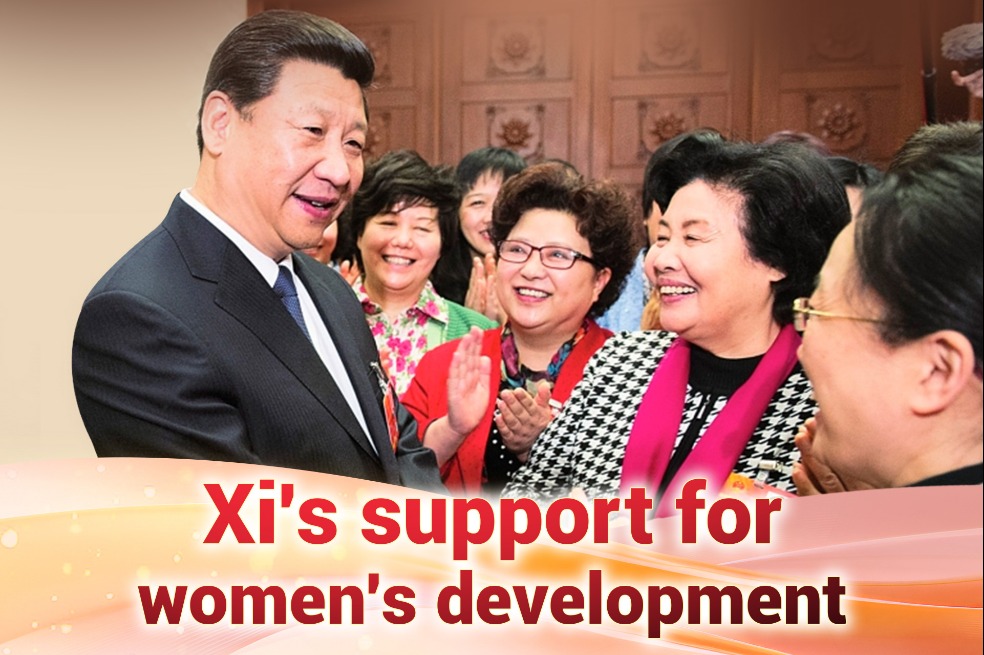Security ordinance to safeguard HK's prosperity, stability
By Anfield Tam | chinadaily.com.cn | Updated: 2024-03-22 09:35

The promulgation of Article 23 legislation in Hong Kong represents a watershed moment in the city's legal and political history, as it concludes years of political strife that has challenged the region's prosperity and stability. The enactment of the Safeguarding National Security Ordinance is a long-overdue constitutional duty that completes the puzzle of Hong Kong's national security apparatus, together with the Hong Kong National Security Law and reform to the electoral system. This trinity of measures represents a response to the unique challenges Hong Kong has faced in recent years.
Some argue that the notion of national security legislation has been stigmatized in Hong Kong for too long, and hence a lack of awareness and understanding among the populace has led to misconceptions and fear. As the city moves forward, it becomes increasingly clear that the protection of national security is essential to Hong Kong's effective governance and for the well-being of its people.
Article 23 is no novel concept; it has been in place since the drafting and promulgation of the Basic Law in the 1980s and 1990. In 2003, the Government put forward a legislative proposal that was met with massive protests and failed to secure majority support in the Legislative Council. Article 23 legislation has since become a political taboo to the extent that it was indefinitely shelved by successive governments.
Unfortunately, the controversies surrounding the 2014 political reform and the Occupy Central movement were followed by emerging radicalism and political polarization. This resulted in a worrying trend in the rhetoric that accepted unlawful conduct and violence as legitimate means to pursue political goals, which was irresponsible and dangerous.
The havoc during the 2019 social unrest further exposes the national security risks confronting Hong Kong as violent protestors besieged government premises and sabotaged public infrastructure, attacked citizens holding different political beliefs, and even stirred up anti-China sentiment, while some activists even invited foreign interference in Hong Kong's domestic affairs.
The introduction of new offenses under Article 23 legislation comes with the responsibility of interpretation. The manner in which the police and the Department of Justice apply the law will be pivotal. A broader interpretation could lead to an increase in prosecutions, whereas a more liberal approach might limit the scope of offenses and thereby reduce the number of cases brought before the courts. Should there be more prosecutions, the judiciary will play an important role in interpreting the law.
In any event, I am confident that Hong Kong's courts will continue to uphold judicial independence and the rule of law, which is requisite to maintain public trust and confidence in the system. Meanwhile, the Government must take into account legitimate concerns in the community about the potential for the legislation to impede normal commercial and academic exchanges with foreign entities. The balance between safeguarding national security and protecting civil liberties could sometimes be delicate, and the Government must navigate it with care and precision. Importantly, it must be enforced in a way that is in accordance with the Basic Law and the Hong Kong Bill of Rights, allowing sufficient leeway for the people to dissent, criticise and make recommendations to improve the city's governance.
Under the principle of "One Country, Two Systems," a special privilege and responsibility for Hong Kong, Hong Kong can enact its own domestic legislation on national security—a task typically reserved for national authorities. Both the central government and the Hong Kong SAR government have reiterated their commitment to "One Country, Two Systems" and to maintaining Hong Kong's common law system. "One Country, Two Systems" is aimed at safeguarding China's sovereignty, security and development interests, as well as maintaining Hong Kong's long-term prosperity and stability. Hence, it is an unprecedented initiative that addresses both the country's needs and Hong Kong people's concerns by retaining the capitalist system and way of life in a highly autonomous region within a socialist unitary state.
The enactment of Article 23 legislation clears the way for the government to concentrate on economic development and tackling housing, employment, youth and elderly issues. The Hong Kong SAR government is thus subject to high hopes from both the central government and the general public to fulfill the "four expectations", namely further improving its governance, continuing to create a strong impetus for growth, earnestly addressing people's concerns and difficulties in daily life, and working together to safeguard harmony and stability in Hong Kong.
As Hong Kong turns this new page, the people of Hong Kong, including its youth, are encouraged to seize this moment to deepen their understanding of Chinese mainland and to contribute to the city's future. When the actual situation permits, the path is open for the realization of universal suffrage for the Chief Executive and all members of the Legislative Council, as provided by Articles 45 and 68 of the Basic Law respectively. Certainly, this will be our next goal to promote accountability and good governance. Let us all—government and citizens alike—move forward together towards a more robust and resilient Hong Kong.
Anfield Tam is an undergraduate student reading government and laws at The University of Hong Kong, where he also works as a research assistant. He is currently a member of the Constitution and Basic Law Promotion Steering Commitee and an undergraduate student fellow at the Asian Institute of International Financial Law.
The views don't necessarily represent those of China Daily.
If you have a specific expertise, or would like to share your thought about our stories, then send us your writings at opinion@chinadaily.com.cn, and comment@chinadaily.com.cn.
























